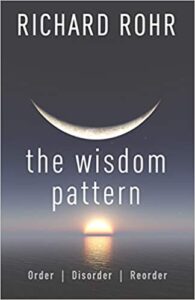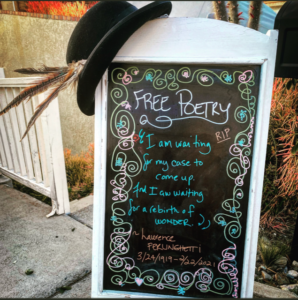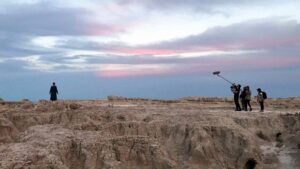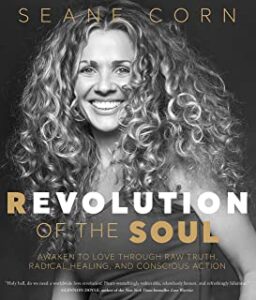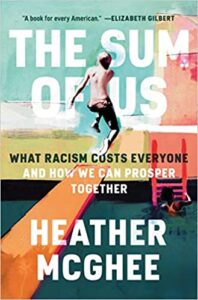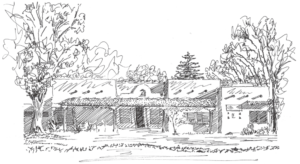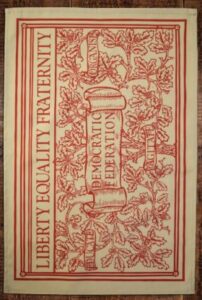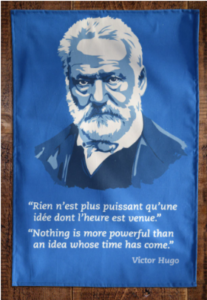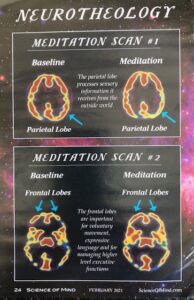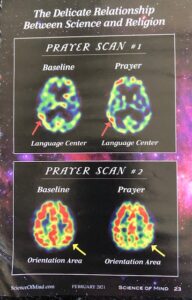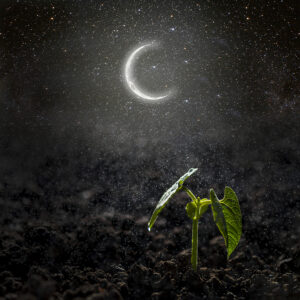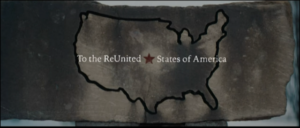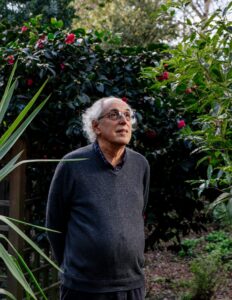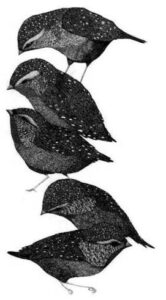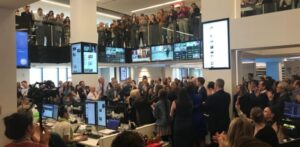Cathars
February 28, 2021“Lo Boier” is a mysterious Chant left for us by the Gnostic Cathars, when they were killed and annhiliated by religious powers in the 13th/14th century. It is highly symbolical and contains a hidden message for spiritual seekers. Singer: Patrick Lenk.
a, e, i, o, u
Along with Se Canta, it is possibly the most known old Occitan song. It was studied by Gérard de Sède and performed by artists like Corou de Berra, Jean-Bernard Plantevin, André Ricros and Gacha Empega. It was also utilized by Radio Toulouse during World War I as a resistance song.
‘If you are not listening breathe slowly and begin the vow to listen.’ -Mark Nepo
‘Most people who reach out for let are really asking for us to listen.’ -Heidi Green
~
‘He has told you, O mortal, what is good, and what does the lord require of you but to do justice, and to love kindness, and to walk humbly with your God?’
-Micha 6:8
‘We are all just walking each other home.’
-Ram Dass
Sophia.
February 26, 2021Cynthia Bourgeault, An Introductory Wisdom School: Course Transcript and Companion Guide (Wisdom Way of Knowing: 2017), 2. Please note: Today is the last day to register for Cynthia’s Introductory Wisdom School online course.
Sophia: Koinē Greek: Σοφíα “Wisdom“, Coptic: ⲧⲥⲟⲫⲓⲁ “the Sophia”
W I S D O M
Center for Action & Contemplation
Fr Richard Rohr:
‘Wisdom is clearly more than mere intelligence, knowledge of facts, or information. Wisdom is more synthesis than analysis, more paradoxical than linear, more a dance than a march. In order to grow in wisdom, we need to move beyond cerebral, rational knowing. As wisdom teacher Cynthia Bourgeault puts it: “Wisdom is not knowing more, but knowing with more of you, knowing deeper.” I’ve created a list of seven “ways of knowing” that together can move us toward greater wisdom. Here are the first four:
Intellect: The lens that we most associate with knowing is intellectualknowing. It’s the result of formal education and it has to do with science, reason, logic, and what we call intelligence. Most of us are trained to think that it is the only way of knowing or the superior way of knowing. Yet that isn’t necessarily true. Seeing intellectual intelligence as the best or only way of knowing is actually a great limitation.
Will: The second way of knowing is volitional knowing. It comes from making choices, commitments, and decisions, then sticking with them, and experiencing them at different stages. Anyone who has made and then kept vows knows what I’m talking about. It is a knowing that comes from making choices and the very process of struggling with the choices. This knowing is a kind of cumulative knowing that emerges over time. The Franciscan scholar John Duns Scotus (1266–1308) felt that volitional knowing, or will, was higher and closer to love than intellectual knowing.
Emotion: Great emotions are especially powerful teachers. Love, ecstasy, hatred, jealousy, fear, despair, anguish: each have their lessons. Even anger and rage are great teachers, if we listen to them. They have so much power to reveal our deepest self to ourselves and to others, yet we tend to consider them negatively. I would guess that people die and live much more for emotional knowing than they ever will for intellectual, rational knowing. To taste these emotions is to live in a new reality afterward, with a new ability to connect.
Senses: Bodily or sensory knowing comes through the senses, by touching, moving, smelling, seeing, hearing, breathing, tasting—and especially at a deep or unconscious level. Becoming aware of our senses in a centered way allows us to awaken, to listen, to connect. It allows us to know reality more deeply, on our body’s terms instead of our brain’s terms. It is no surprise that Jesus touched most of the people he healed. Something very different is communicated and known through physical touch, in contrast with what is communicated through mere words.
Also,
‘Here are the three further “ways of knowing” that can allow us to access greater wisdom:’
Images: Imaginal knowing is the only way that the unconscious can move into consciousness. It happens through fantasy, through dreams, through symbols, where all is “thrown together” (sym-ballein in Greek). It happens through pictures, events, and well-told stories. It happens through poetry, where well-chosen words create an image that, in turn, creates a new awareness—that was in us already. We knew it, but we didn’t know it. We must be open to imaginal knowing because the work of transformation will not be done logically, rationally, or cerebrally. Our intellectual knowing alone is simply not adequate to the greatness and the depth of the task.
Aesthetic: In some ways, aesthetic knowing is the most attractive, but I think it’s often the least converting. Art in all its forms so engages us and satisfies us that many go no deeper. Still, aesthetic knowing is a central and profound way of knowing. I’ve seen art lead to true changes of consciousness. I have seen people change their lives in response to a novel, a play, a piece of music, or a movie like Dead Man Walking. Their souls were prepared, and God got in through the right metaphor at the right time. They saw their own stories clarified inside of a larger story line.
Epiphany: The last way of knowing, which I’d think religion would prefer and encourage, is epiphanic knowing. An epiphany is a parting of the veil, a life-changing manifestation of meaning, the eureka of awareness of self and the Other. It is the radical grace which we cannot manufacture or orchestrate. There are no formulas which ensure its appearance. It is always a gift, unearned, unexpected, and larger than our present life. We cannot manufacture epiphanies. We can only ask for them, wait for them, expect them, know they are given, keep out of the way, and thank Someone afterward.
“A universal pattern can be found in all societies and in fact in all of creation. We see it in the seasons of the year; the stories of Scripture; the life, death, and resurrection of Jesus; the rise and fall of civilizations; and even in our own lives. In this new version of one of his earlier books, Father Richard Rohr illuminates the way understanding and embracing this pattern can give us hope in difficult times and the courage to push through messiness and even great chaos to find a new way of being in the world.”
Adapted from Richard Rohr, The Wisdom Pattern: Order, Disorder, Reorder (Franciscan Media: 2020), 121–127
‘Kindness of the soul.’
February 25, 2021Lawrence Ferlinghetti passed this week. He was 101. [1919-2021]
Ferlinghetti was a publisher, poet, and bookseller in San Francisco, publishing the controversial “Howl” by Allen Ginsburg that embraced and argued for our First Amendment rights.
F R E E D O M O F S P E A C H
‘Holy forgiveness! mercy! charity! faith! Holy! Ours! bodies! suffering! magnanimity! Holy the supernatural extra brilliant intelligent kindness of the soul!’
-Howl, 1956
From Jelani Cobb: “Not many people can say they both built an institution and become one.”
“There is a voice that doesn’t use words, listen.” -Rumi
It was in Ferlinghetti’s passing this week I gravitated to a film exemplifying the ‘kindness of the soul.’ Incredible filmmaking. ‘Nomadland’ [Hulu]. Here’s the trailer:
“What’s remembered, lives. I maybe spent too much of my life just remembering.”
This film broke me about seven different ways; it is extraordinary. It is beautifully written, directed, edited, and produced by Chloé Zhao.
[Frances McDormand and director Chloe Zhao.]
The film stars Francis McDormand and actor David Strathairn has a role, too. Remarkably and seamlessly, Zhao uses real folks to tell the story, their story, of the ‘workampers.’ They will find your heart, and stay.
The impetus for the film came from a Harper’s Magazine article by Jessica Bruder, “The End of Retirement: When you can’t afford to stop working,” published in 2014.
Later, Bruder would drive more than 15,000 miles in the camper van on a mission to follow the wanderers who would become the stars of her 2017 book “Nomadland: Surviving America in the Twenty-First Century.”
See it. Share it. And maybe, even live it.
“Energy is like a muscle; it grows when we use it. We grow in our capacity to do the right thing each time we do the right thing.” -Rolph Gates
There is an expectation that the pandemic to create more nomads with an interest in the van-dwelling surge after the 2008 crisis, hardly letting up. Cost of housing being one major factor, but suggests another: disillusionment and dissatisfaction — with the American Dream and the evaporation of pensions. “The golden years were not going to be golden.”
“Nomadland” is nominated for four Golden Globes on Feb. 28: best picture, director, screenplay and actress, and is a strong contender for the Oscars in April.
Silence, whispers and love.
February 22, 2021‘In the Bhagavad Gita we are told that we transcend our suffering to the degree that we are able to passionately employ our gifts in the service of others.’
-Rolph Gates & Katrina Kenison
‘Let us be silent so we may hear the whisper of God.’
-Ralph Waldo Emerson
“One day, if you ever write a book, tell them you got this from your dying dad: ‘Love big, forgive always, do good, and don’t be an asshole’
‘L O V E. Let love lead your life and your choices. Let it become who you are, and just be grateful. For all of it. Life is really heard, but it’s also really good, and it’s all yours, my baby. So grab it hard, hold it tight, learn all you can. Experience everything, and when it comes time to let go, like I need to now, just be thankful for it all.’
-Seane Corn’s dad
(Seane’s dad passed from cancer around 10 years ago.)
Past and Present. A community dialogue.
February 21, 2021To understand the world knowledge is not enough, you must see it, touch it, live in its presence.
—Teilhard de Chardin, Hymn of the Universe
The American Lie.
No. Not the election.
The big lie in the United States is racism only effects people of color.
Heather McGhee’s book is brilliant. She is brilliant. Her book is incredibly researched and synthesized. A must read book for every journalist, politician, policy creator, and student. Actually, you know what? Everyone should read Heather’s book. And she speaks like she writes, clearly, foundationally, and directly. We need to listen. -dayle
NPR/Fresh Air
The heart of McGhee’s case is that racism is harmful to everyone, and thus we all have an interest in fighting it. Drawing on a wealth of economic data, she argues that when laws and practices have discriminated against African Americans, whites have also been harmed. When people unite across racial and ethnic lines, she argues, there’s a solidarity dividend that helps everyone.
Heather McGhee is the former president of the progressive think tank Demos, where she spent much of her career. She holds a BA in American Studies from Yale and a law degree from the University of California, Berkeley. She currently chairs the board of Color of Change, a nationwide online racial justice organization. Her new book is “The Sum Of Us: What Racism Costs Everyone And How We Can Prosper Together.”
Heather McGhee:
This to me is really the kind of parable at the heart of the book. It’s what’s illustrated on the cover. In the 1920s, ’30s and ’40s, the United States went on a building boom of these grand resort-style swimming pools. These were the kind that would hold hundreds, even thousands, of swimmers. And it was a real sort of Americanization project. It was to create a, like, bath-temperature melting pot of, you know, white ethnic immigrants and people in the community to come together. It was sort of a commitment by the government to a leisure-filled American dream standard of living. And in many of these public pools, the rule was that it was whites only, either officially or unofficially. And in the 1950s and ’60s when Black communities began to, understandably, say, hey, it’s our tax dollars that are helping to support this public good, we need to be allowed to swim, too, all over the country, particularly in the American South but in other places as well, white towns facing integration orders from the courts decided to drain their public swimming pools rather than let Black families swim, too.
Now, I went to Montgomery, Ala., where there used to be one of those grand resort-style pools and where effective January 1, 1959, not only did they back a truck up and pour dirt into the pool and pave it over, but they also sold off the animals in the municipal zoo. They closed down the entire parks and recreation department of Montgomery for a decade. It wasn’t until almost 1970 that they reopened the park system for the entire city. And I walked the grounds of Oak Park. Even after they reopened it, they never rebuilt the pool. And that, to me, felt like this just tangible symbol of the way that a population taught to distrust and disdain their neighbors of color will withdraw from public goods when they no longer see the public as good.
Interview with Dave Davies on NPR:
https://www.npr.org/2021/02/17/968638759/sum-of-us-examines-the-hidden-cost-of-racism-for-everyone
The Daily Show with Trevor Noah
“The Sum of Us,” and underlines the importance of having honest conversations about past and present racism at a community level.
Ezra Klein/NYTimes
What ‘Drained-Pool’ Politics Costs America
I asked McGhee to join me on my podcast, “The Ezra Klein Show,” for a discussion about drained-pool politics, the zero-sum stories at the heart of American policymaking, how people define and understand their political interests, and the path forward. This is, in my view, a hopeful book, and a hopeful conversation. There are so many issues where the trade-offs are real, and binding. But in this space, there are vast “solidarity dividends” just waiting for us, if we are willing to stand with, rather than against, each other.
Also from the NYTimes.
opinion
The book That Should Change How Progressives Talk About Race
Heather McGhee writes that racism increases economic inequality for everyone.
by Michelle Goldberg
McGhee’s book is about the many ways racism has defeated efforts to create a more economically just America. Once the civil rights movement expanded America’s conception of “the public,” white America’s support for public goods collapsed. People of color have suffered the most from the resulting austerity, but it’s made life a lot worse for most white people, too. McGhee’s central metaphor is that of towns and cities that closed their public pools rather than share them with Black people, leaving everyone who couldn’t afford a private pool materially worse off.
One of the most fascinating things about “The Sum of Us” is how it challenges the assumptions of both white antiracism activists and progressives who just want to talk about class. McGhee argues that it’s futile to try to address decades of disinvestment in schools, infrastructure, health care and more without talking about racial resentment.
[…]
“Communicators have to be aware of the mental frameworks of their audience,” McGhee told me. “And for white Americans, the zero-sum is a profound, both deeply embedded and constantly reinforced one.”
This doesn’t mean that the concept of white privilege isn’t useful; obviously it describes something real. “What privilege awareness does, at its best, is reveal the systematic unfairness, and lift the blame from the victims of a corrupt system,” McGhee said. “However, I think at this point in our discourse — also when so many white people feel deeply unprivileged — it’s more important to talk about the world we want for everyone.”
Center for Action and Contemplation in Albuquerque, New Mexico.
Theologian Howard Thurman, from Walter Brueggemann, The Message of the Psalms: A Theological Commentary [1984].
Thurman takes what is personal and makes it universal. Walter Brueggemann calls this “the scandal of particularity.” [1] We “get it” in one ordinary, concrete moment and wrestle and fall in love with it there. It’s a scandal precisely because it’s so ordinary. What is true in one place finally ends up being true everywhere.
From Barbara Holmes and her lecture Race and the Cosmos, unpublished Living School curriculum.
As I considered it, the truth of the matter was that we were living within an old story; and a new story needed to be told, but we didn’t have the language for it.
The old story was of victimization, marginalization, oppression, oppressors; and the new story would see all of us evolving, self-expanding, and finding a new place in this wonderful cosmology that is a reality we have not paid attention to. So, in order to get to that point—and here is where my transformation begins—I had to reconsider what I thought about people, because I had hardened my view of others and who they were and what they meant. I had spent my time raising two little African American boys who had to be taught how to survive in society. In doing that, I taught them to view the world in only one way; and I myself was hardened into a position that either you were with me or you were against me or us.
All of that had to change. I had to begin to think of us as spiritual beings having a human experience, and not bodily, embodied folks without spirit or soul. . . . That’s a very limited view of humankind, and I wanted to expand the story. . . .
The physics and cosmology revolution that is 100 years old has not been translated into the ordinary world of any of us, and specifically not in communities of color. The world that scientists describe now is so different than the world that I grew up in or even imagined. According to physicists, this is what the world is like: it is a universe permeated with movement and energy that vibrates and pulses with access to many dimensions. . . . We are all interconnected, not just spiritually or imaginally, but actually . . . and the explicate [or manifested] order that’s all around us makes us think that we’re separate. Finally, I learned that ideas of dominance are predicated on a Newtonian clockwork universe. So, like dominoes, you push one and they all fall down, and everything is in order. But quantum physics tells us that the world is completely different. Particles burst into existence in unpredictable ways, observations affect the observed, and dreams of order and rationality are not the building blocks of the universe.
A compilation piece: 2-part documentary on PBS, The Black Church: This Is Our Story, This Is Our Song, from executive producer, host, and writer Henry Louis Gates, Jr.
It traces the 400-year-old story of the Black church in America, all the way down to its bedrock role as the site of African American survival and grace, organizing and resilience, thriving and testifying, autonomy and freedom, solidarity and speaking truth to power.
It is now available online.
https://www.pbs.org/show/black-church/
Cicely Tyson December 19, 1924 – January 28, 2021
Kennedy Center Honors, December 2015.
Radical social change.
Radical Tea Towel
The Manouchian Group
by Pete Morgan
77 years ago today, Missak Manouchian and twenty-one comrades were shot at Fort Mont-Valérien, on the outskirts of Paris.
‘Missak was an intellectual and a radical. He read his way through the libraries of the Latin Quarter, and developed a real talent for poetry, as well as translating Baudelaire, Verlaine, and Rimbaud into Armenian, all while working to survive and organizing for revolution!
He was a trade unionist in the General Confederation of Labour (CGT), and in 1934 he joined the French Communist Party (CPF) – a popular home for interwar radicals, from Sartre to Camus.
Under constant threat of arrest, torture, and execution, these anti-fascist heroes were the cutting edge of the Resistance to Nazism and its French collaborators.
77 years ago today, Missak Manouchian and twenty-one comrades were shot at Fort Mont-Valérien, on the outskirts of Paris.
After the executions, the Nazis circulated a propaganda poster in France denouncing the Manouchian fighters as an “army of crime” and emphasizing their foreignness and Jewishness. It was a desperate attempt to turn the French people against their own liberating forces.
As a measure of its ineffectiveness, many of these posters – which showed photos of all the executed Manouchian group members – were graffitied with “MORTS POUR LA FRANCE”.’
They died for France.
Author Victor Hugo may have lived a century before Missak but he too used his position to fight for radical social change in France.
Dan Rather
February 11, 2021I am shaken, and I like to think I don’t shake easily.
I am moved to a deep and profound sadness, and I don’t like to think I am prone to melancholy.
But I am also emboldened and determined that what we saw today, the overwhelming evidence presented by the House Managers in the impeachment trial of Donald Trump, shall not, must not, be a portent for where this country goes. Rather it must be a wake-up call to centuries of injustice and false grievances that a would-be despot, bolstered by no shortage of confederates, weaponized and catapulted into an assault on American democracy. As I write these words I still cannot quite believe what really happened. Nevertheless, there can be no denying the reality.
I have tried to get into a rhythm for these Steady posts with a morning publishing schedule. But I feel strongly that the events of today warrant an evening edition.
January 6 was a coordinated attack. It was built atop a foundation of lies doled out with precision over days and weeks. From a different perspective, you might say this was months, years, and even generations in the making. Will it be the last gasps of a discredited white supremacy and the other forces of intolerance that weaken our nation? Will we be able to successfully fight off the lies and propaganda? Or will this be part another major strike of the sledgehammer that’s fracturing our democratic experiment?
I firmly believe that the vast majority of American citizens will see this clearly for what it is. But our voices are on the sidelines for now, other than the pressure of conscience we can bring to bear on the 100 senators who will stand in judgement. That these same women and men were also in the crosshairs of the murderous mob and that the trial is taking place at the scene of the crime, makes the events transpiring today on Capitol Hill even more surreal.
- For the senators, there can be no hiding from this historic decision… silence or procedural excuses equal complicity.
- For the rioters, there can be no leniency… terrorists are inspired by weakness.
- For the instigators, there can be no immunity… to drum up a mob hellbent on violent injustice is to encourage insurrection.
- For those in the right-wing media who aided and abetted the lies, there can be no normalizing… their role in setting the stage for the insurrection is cemented by hours of television and thousands of tweets.
- For those who have dabbled in the false equivalence framework so prevalent in Washington, this must be the end of that… there can be no comparison between the actions of the previous president and his enablers, abetters, and cheerleaders, and any “other side.” Thankfully, I think many in the press have long ago realized this and have reported accordingly.
Some might argue that this is a rush to judgement, that the president’s counsel has a right to present their case. That is indeed true. But you would have to be willfully ignorant, or cynical to the point of malevolence, to not see and hear with clarity the evidence as it stands.
I have seen my country brought low before. I have reported on the injustices and inequalities that have weakened our national purpose since its inception. I witnessed cowardice and complicity. But never before have I seen all of these undercurrents so focused in a single event.
We have clarity. We have proof. We need accountability. And we need a justice that will ring forth for the generations that follow. We cannot speak of unifying this nation without reckoning with all that is tearing it apart.
—Dan
Prayer, meditation, and a new moon.
February 9, 2021Rilke:
‘Let the farthest, oldest, most ancient
ancestors speak to us!
And let us be listeners at last, humans
finally able to hear.’
Power Path
|
This day.
February 8, 2021“I can never be all the people I want and live all the lives I want. I can never train myself in all the skills I want. And why do I want? I want to live and feel all the shades, tones and variations of mental and physical experience possible in my life.
-Sylvia Plath
In between the now and not yet. – Rev. Masando Hiraoka
The theological virtue of hope is the patient and trustful willingness to live without closure. – Fr Richard Rohr
Prayer enables us to tap into the healing power of the universe. -Rolph Gates
I listen to the wind, the wind of my soul. -Cat Stevens
ℒℴve❥❥☆҉ this book.
To all the health care workers. And the care workers. Thank you.
The middle.
Bruce.
https://www.ign.com/videos/jeep-super-bowl-55-commercial-the-middle-ft-bruce-springsteen
Yeah. Even the middle is polarizing for America now. Still. We loved it.
“The middle has been a hard place to get through lately. Between red and blue; between servant and citizen; between our freedom and our fear.”
“Our light has always found its way through the darkness, and there’s hope on the road ahead”
YHWH
February 6, 2021The YHWH Prayer
You shall not take the name of God in vain.
-Exodus 20:7
Many Christians think the second commandment is a prohibition against swearing. But I believe the real meaning of speaking the name of God “in vain” is to speak God’s name casually or trivially, with a false presumption of understanding the Mystery—as if we knew what we were talking about!
Many Jewish people concluded that the name of God should not be spoken at all. The Sacred Tetragrammaton, YHWH, was not even to be pronounced with the lips! In fact, vocalizing the four consonants does not involve closing the mouth.
A rabbi taught me that God’s name was not pronounceable but only breathable: YH on the captured in-breath, and WH on the offered out-breath!
We come from a very ancient, human-based, natural, biological, universally experienced understanding of God. God’s eternal mystery cannot be captured or controlled, but only received and shared as freely as the breath itself—the thing we have done since the moment we were born and will one day cease to do in this body. God is as available and accessible as our breath itself. Jesus breathes the Spirit into us as the very air of life (see John 20:22)!
And with that he breathed on them and said, “Receive the Holy Spirit.”
Our job is simply to both receive and give this life-breath. We cannot only inhale, and we cannot only exhale. We must breathe in and out, accept and let go.
Take several minutes to pause and breathe mindfully, surrendering to the mystery of wordless air, the sustainer of life. Part your lips; relax your jaw and tongue. Hear the air flow in and out of your body:
Inhale: YH
Exhale: WH
Let your breathing in and out, for the rest of your life, be your prayer to—and from—such a living and utterly shared God. You will not need to prove it to anybody else, nor can you. Just keep breathing with full consciousness and without resistance, and you will know what you need to know.
Adapted from Richard Rohr, Things Hidden: Scripture as Spirituality (Franciscan Media: 2008), 129‒131.
Re-visiting Fairness in Power for Attention
February 5, 2021During the Nixon administration in the 1970’s, the FCC called the Fairness Doctrine the “single most important requirement of operation in the public interest” (Becker, 2017, para. 8)
Becker, W. (2017, Feb. 23). What’s behind Trump’s war with the press? Huffpost.
Retrieved from https://www.huffingtonpost.com/entry/whats-behind-trumps-war-with-the-press_us_58addf5ce4b0598627a55f9e
Seth Godin:
The internet clearly has a trust problem. As with most things, it helps to start with the Grateful Dead.
After their incarnation as the Warlocks, they became more than a band. It was a family on the road. There were people who gave up their careers to follow them around, living on buses… they were seeing thirty or forty shows a year. You traded tickets, did favors, built relationships. People in the family knew that they’d be seeing each other again soon.
And then, in 1987, Touch of Grey went to #1 (their only top 40 hit) and it attracted a huge (and different) crowd to the shows. Reports were that the intimacy and trust disappeared.
Glen Weyl points out that the internet was started by three tribes, as different from each other as could be. The military was behind the original ARPA (and then DARPA) that built and funded it. Professors at universities around the world were among the early users. And in San Francisco, a group of ‘hippies’ were the builders of some of the first culture online.
Because each of these groups were high-trust communities, it was easy to conclude that the people they’d be engaging online would be too. And so, as the tools of the internet and then the web were built out, they forgot to build a trust layer. Plenty of ways to share files, search, browse, chat and talk, but no way to engage in the very complicated things that humans do around identity and trust.
Humans have been in tribal relationships since before recorded history began. The word “tribe” appears in the Bible more than 300 times. But the internet isn’t a community or a tribe. It’s simply a technology that amplifies some voices and some ideas. When we don’t know who these people are, or if they’re even people, trust erodes.
When a site decides to get big fast, they usually do it by creating a very easy way to join, and they create few barriers to a drive-by anonymous experience. And when they make a profit from this behavior, they do it more. In fact, they amplify it.
Which makes good business in the short run, but lousy public policy.
Twenty years ago, I wrote that if someone goes into a bank wearing a mask (current pandemic aside) we can assume that they’re not there to make a deposit.
And now we’re suffering from the very openness and ease of connection that the internet was built on. Because a collection of angry people talking past each other isn’t a community. Without persistence of presence, some sort of identity and a shared set of ideals, goals and consequences, humans aren’t particularly tempted to bring their best selves to the table.
The system is being architected against our best impulses. Humans understand that local leadership, sacrifice and generosity build community, and that fights and scandals simply create crowds. Countless people are showing up, leading and pushing back, but algorithms are powerful and resilient, and we need some of them to be rebuilt.
Until there’s a correlation between what’s popular or profitable and what’s useful, we’re all going to be paying the price.
Freedom Forum
Opinion by Nicole Hemmer
‘The Fairness Doctrine, a regulation from the late ‘40’s until 1987, dictated balanced coverage of controversial issues on broadcast radio and television. After its repeal, Rush Limbaugh & Fox News quickly became two of the most influential political institutions in the US.
George Orwell
Want to reinstate the FCC’s Fairness Doctrine to help curb the spread of disinformation? Conservatives and liberals both may well want to reconsider that idea, argues a Columbia University scholar.’
What America needs instead is a creative, comprehensive effort by both the private sector and the government to disincentivize conspiracies and misinformation on the many platforms on which they flourish. Some social media companies have begun this work, clearing out QAnon sites and banning some far-right and White power users and communities who pose a threat.That work needs to continue, with careful attention to the biggest offenders who game algorithms and media structures to spread misinformation. But sources of misinformation also need to be demonetized, whether they are YouTube channels or national cable networks, and algorithms tweaked to slow down the spread of extreme content.’
NYTimes
I Talked to the Cassandra of the Internet Age
The internet rewired our brains. He predicted it would.
Posted on twitter 2.4.21:
“I’m going to spend more time writing on this because this is not only a digital detox story. it’s a story about power. And it’s at the center of everything.”
“Michael Goldhaber is the internet prophet you’ve never heard of. Here’s a short list of things he saw coming: the complete dominance of the internet, increased shamelessness in politics, terrorists co-opting social media, the rise of reality television, personal websites, oversharing, personal essay, fandoms and online influencer culture — along with the near destruction of our ability to focus.
Most of this came to him in the mid-1980s, when Mr. Goldhaber, a former theoretical physicist, had a revelation. He was obsessed at the time with what he felt was an information glut — that there was simply more access to news, opinion and forms of entertainment than one could handle. His epiphany was this: One of the most finite resources in the world is human attention. To describe its scarcity, he latched onto what was then an obscure term, coined by a psychologist, Herbert A. Simon: “the attention economy.”
Advertising is part of the attention economy. So are journalism and politics and the streaming business and all the social media platforms. But for Mr. Goldhaber, the term was a bit less theoretical: Every single action we take — calling our grandparents, cleaning up the kitchen or, today, scrolling through our phones — is a transaction. We are taking what precious little attention we have and diverting it toward something. This is a zero-sum proposition, he realized. When you pay attention to one thing, you ignore something else.
The idea changed the way he saw the entire world, and it unsettled him deeply. “I kept thinking that attention is highly desirable and that those who want it tend to want as much as they can possibly get,” Mr. Goldhaber, 78, told me over a Zoom call last month after I tracked him down in Berkeley, Calif. He couldn’t shake the idea that this would cause a deepening inequality.
“When you have attention, you have power, and some people will try and succeed in getting huge amounts of attention, and they would not use it in equal or positive ways.”
More than a decade later, Mr. Goldhaber lives a quiet, mostly retired life. He has hardly any current online footprint, except for a Twitter account he mostly uses to occasionally share posts from politicians. I found him by calling his landline. But we are living in the world he sketched out long ago. Attention has always been currency, but as we’ve begun to live our lives increasingly online, it’s now the currency. Any discussion of power is now, ultimately, a conversation about attention and how we extract it, wield it, waste it, abuse it, sell it, lose it and profit from it.
While Mr. Goldhaber said he wanted to remain hopeful, he was deeply concerned about whether the attention economy and a healthy democracy can coexist. Nuanced policy discussions, he said, will almost certainly get simplified into “meaningless slogans” in order to travel farther online, and politicians will continue to stake out more extreme positions and commandeer news cycles. He said he worried that, as with Brexit, “Rational discussion of what people stand to gain or lose from policies will be drowned out by the loudest and most ridiculous.”
[Alex Kiesling]
Full article:
“You are in the time of the interim
Where everything seems withheld.
The path you took to get here has washed out.
The way forward is still concealed from you.
The old is not old enough to have died away.
The new is still too young to be born.”
-John O’Donohue
~
“To know anything fully is always to hold that part of it which is still mysterious and unknowable.” -Fr Richard Rohr
~
What has happened to our ability to dwell in unknowing, to live inside a question and coexist with the tensions of uncertainty? Where is our willingness to incubate pain and let it birth something new? What has happened to patient unfolding, to endurance?
These things are what form the ground of waiting. And if you look carefully, you’ll see that they’re also the seedbed of creativity and growth—what allows us to do the daring and to break through to newness. . . .
Creativity flourishes not in certainty but in questions. Growth germinates not in tent dwelling but in upheaval. Yet the seduction is always security rather than venturing, instant knowing rather than deliberate waiting.
-Sue Monk Kidd
When the Heart Waits: Spiritual Direction for Life’s Sacred Questions
We must speak to it.
Before you know what kindness really is
you must lose things,
feel the future dissolve in a moment
like salt in a weakened broth.
What you held in your hand,
what you counted and carefully saved,
all this must go so you know
how desolate the landscape can be
between the regions of kindness.
How you ride and ride
thinking the bus will never stop,
the passengers eating maize and chicken
will stare out the window forever.Before you learn the tender gravity of kindness
you must travel where the Indian in a white poncho
lies dead by the side of the road.
You must see how this could be you,
how he too was someone
who journeyed through the night with plans
and the simple breath that kept him alive.
Before you know kindness as the deepest thing inside,
you must know sorrow as the other deepest thing.
You must wake up with sorrow.
You must speak to it till your voice
catches the thread of all sorrows
and you see the size of the cloth.
Then it is only kindness that makes sense anymore,
only kindness that ties your shoes
and sends you out into the day to gaze at bread,
only kindness that raises its head
from the crowd of the world to say
It is I you have been looking for,
and then goes with you everywhere
like a shadow or a friend.
Government Reporters
February 1, 2021“We’re going to rebrand you—no longer political reporters, you are government reporters; an important distinction—frees you to cover what’s happening in Washington in context of whether it’s serving the people well, rather than which party is winning.”
‘…incremental news coming out of Washington makes no sense to readers unless they are familiar with the larger narrative—we can’t assume they are. We can’t assume they understand basic civics or they appreciate the difference b/t verifiable facts & baseless lies.’
P R E S S W A T C H
An intervention for political journalism.
by Dan Froomkin
The newly announced resignation of Washington Post executive editor Marty Baron, the abrupt stepping-down of Los Angeles Times executive editor Norman Pearlstine in December, and the highly anticipated departure of New York Times executive editor Dean Baquet combine to create an epic moment of reckoning for these highly influential news organizations.
A new generation of leaders is coming! And they have a lot of urgent repair work ahead of them. That includes abandoning the failed, anachronistic notions of objectivity under which they have operated for so long, recognizing and rejecting establishment whiteness, and finding dramatically more effective ways to create an informed electorate.
Nowhere are those challenges more critical than when it comes to reporting about politics and government. So as my way of helping out, I’ve written a speech for the next boss to give to their political staffs. It goes like this:
It’s so nice to be here. I’m looking forward to working with all of you amazing reporters and editors. You’ve all shown you’re capable of incredible work, and I respect you enormously.
But at the same time, my arrival here is an inflection point.
It’s impossible to look out on the current state of political discourse in this country and think that we are succeeding in our core mission of creating an informed electorate.
It’s impossible to look out at the looming and in some cases existential challenges facing our republic and our globe – among them the pandemic, climate change, income inequality, racial injustice, the rise of disinformation and ethnic nationalism – and think that it’s OK for us to just keep doing what we’ve been doing.
So let me tell you a bit about what we need to do differently.
First of all, we’re going to rebrand you. Effective today, you are no longer political reporters (and editors); you are government reporters (and editors). That’s an important distinction, because it frees you to cover what is happening in Washington in the context of whether it is serving the people well, rather than which party is winning.
Historically, we have allowed our political journalism to be framed by the two parties. That has always created huge distortions, but never like it does today. Two-party framing limits us to covering what the leaders of those two sides consider in their interests. And, because it is appropriately not our job to take sides in partisan politics, we have felt an obligation to treat them both more or less equally.
Both parties are corrupted by money, which has badly perverted the debate for a long time. But one party, you have certainly noticed, has over the last decade or two descended into a froth of racism, grievance and reality-denial. Asking you to triangulate between today’s Democrats and today’s Republicans is effectively asking you to lobotomize yourself. I’m against that.
Defining our job as “not taking sides between the two parties” has also empowered bad-faith critics to accuse us of bias when we are simply calling out the truth. We will not take sides with one political party or the other, ever. But we will proudly, enthusiastically, take the side of wide-ranging, fact-based debate.
While we shouldn’t pretend we know the answers, we should just stop pretending we don’t know what the problems are. Indeed, your main job now is to publicly identify those problems, consider diverse views respectfully, ask hard questions of people on every side, demand evidence, explore intent, and write up what you’ve learned. Who is proposing intelligent solutions? Who is blocking them? And why?
And rather than obsess on bipartisanship, we should recognize that the solutions we need – and, indeed, the American common ground — sometimes lie outside the current Democratic-Republican axis, rather than at its middle, which opens up a world of interesting political-journalism avenues.
Political journalism as we have practiced it also too often emphasizes strategy over substance. It focuses on minor, incremental changes rather than the distance from the desirable – or necessary — goal. It obfuscates, rather than clarifies, the actual problems and the potential solutions.
Who’s winning today’s messaging wars is a story that may get you a lot of tweets, but in the greater scheme of things it means nothing. It adds no value. It’s a distraction from what matters to the public. It also distracts you from more important work.
Tiresomely chronicling who’s up and who’s down actually ends up normalizing the status quo. I ask you to consider taking — as a baseline — the view that there is urgent need for dramatic, powerful action from Washington, not just when it comes to the pandemic and the economic collapse, but regarding climate change and pollution, racial inequities, the broken immigration system, affordable health care, collapsing infrastructure, toxic monopolies, and more.
Then you get to help set the national agenda, based on what your reporting leads you to conclude that the people want, need, and deserve.
Learning from our Mistakes
Let’s also consider the biggest mistakes we have made over the last two decades, and learn from them.
The most important lesson of the Bush/Cheney years is that we should never assume government officials are telling us the truth, especially when it comes to matters involving war and national security. This is hardly an original lesson, and yet nonetheless it bears repeating. We should be particularly skeptical if they claim that secrecy precludes them from showing us concrete, persuasive evidence. The government routinely uses secrecy to protect itself, not the people.
One major lesson from the Obama years is: Don’t become complacent just because the president appears to know what he’s doing. The White House is a bubble, no matter its occupant. Power not only corrupts, it distorts, it distances, it detaches. The president and his staff must be constantly questioned, challenged, and exposed to reality outside the bubble. Critics must be heard. Transparency must be enforced. The press is uniquely capable of making that happen.
The big lesson from the 2016 election was not that we were out of touch with real people. It was that we had ignored – and, indeed, contributed to – a massive, viral outbreak of know-nothingism whose co-morbidities included white supremacy, white grievance, disinformation spread through the media and social media, mental illness, and, yes, some legitimate disillusionment about an uncaring and unresponsive government by the elites. We in the media helped by offering a divisive megalomaniac free and often unfiltered attention, by normalizing the radical extremism of the modern-day Republican Party, and by blowing Democratic failings wildly out of proportion to create false equivalence.
Faced – indeed shocked – by Trump’s victory, we should have risen to the challenge and jumped to an emergency footing. We should have gone not back to work as usual, but to war – a war not against Trump but against lies, incipient authoritarianism, and white supremacy. We should have corrected misinformation and advocated for the truth as emphatically and effectively as Fox News and the rest of the right-wing propaganda ecosystem armed its audience with misinformation.
So yeah, let’s not make those mistakes again.
Luckily, the enthusiasm and skills that brought you into the news business in the first place are exactly what’s needed right now. My goal is not to squelch you, it is to encourage you to use your exceptional abilities to observe, analyze, and communicate to help the public understand the news and put it in context.
Sometimes, that will just entail remembering – maybe even just remembering the other stories you yourself have written. Much of the incremental news coming out of Washington these days makes no sense to readers unless they are familiar with the larger narrative. And we can’t assume they are. We can’t assume they understand basic civics. We can’t even assume they appreciate the difference between verifiable facts and baseless lies.
Habits developed in an era of loyal readers and limited space no longer apply – not when people land on our stories from who-knows-where and we can offer background and verification, through our writing and through supplementary links. What has been the unstated subtext of so many of our stories – that politics bends to the powerful, that bigotry blights so many American lives, that climate catastrophe is imminent – needs to be clear and obvious going forward. It needs to be in the headline.
Here’s how we’re going to start: I want each of you to write a “beat note,” in which you describe at a high level what you see happening on your beat, what major questions you’re trying to answer, who the key players are, who seems to be operating in good faith and bad faith, what pressures they are under, and what you think the biggest challenges are ahead. Then we’ll publish them. We’ll link to them from your “author” pages so people will know where you’re coming from. We’ll encourage your editors, your colleagues, the readers — and an economically and racially diverse advisory board I’m putting together – to interrogate those memos. We’ll encourage you to engage in conversation about those memos. And you’ll revise and update them going forward.
On Whiteness
So let’s talk about economic and racial diversity.
I look out at our profession, and I don’t see much of it.
Over time, that has to change. And it will change – but not overnight.
What we need to do, in the meantime, is recognize the effects of that: namely, that we have for a long time now operated in an atmosphere of establishment whiteness, where whiteness and white values are considered the norm.
This has corrupted what the previous generation of leaders considered “objective” journalism. Even if you value being “detached” or “above it all” – which, for the record, I do not — you are neither of those things if you haven’t recognized, not to mention rejected, white privilege and presumptions.
We in this business write and report, by default, from a position of whiteness. Our sources are too often white and male. Our presumed readers – the ones we worry about not offending – are white, male, affluent, and centrist (as if centrism were still a thing.)
We too often think of whiteness as neutral. What we have all witnessed so vividly in the last four years is what nonwhite people have experienced for decades: that it is not. Whiteness can no longer be invisible in this newsroom. It must be acknowledged, studied and questioned. Non-white voices must be raised up and valued.
In the meantime, here’s what you can start doing differently in your daily work right now: Visualize an audience that is diverse – politically, racially, socioeconomically, demographically, geographically, and by gender. Make a project of diversifying your sources. Question your blind spots. Recognize racism and call it out. Solicit criticism from people you respect.
Instead of trying to triangulate based on what you think you should be writing, or what your editors expect from you, or what you might get dinged for on Twitter, root everything you do in basic moral, journalistic principles, like fair play, civil liberty, free speech, truth in government, and a humane society. You might call that “moral clarity.”
And a Few Other Things
From now on, I’m the bad cop when it comes to dishy sources who want to talk to you anonymously. When you tell your sources “my boss won’t let me quote you unless you speak to me on the record,” that’s me.
Granting anonymity is a two-way contract and should only come in return for delivering accurate information of great value to the public. In its ideal form, it protects sources who tell secrets and would otherwise face retribution from the bosses who don’t want the public to know the truth.
But publishing what anonymous sources say is essentially vouching for their credibility, because readers have no way of judging it on their own. It also means the sources can avoid accountability of any kind for what they said, including if they lied.
So new rules:
- No anonymous sourcing unless you and your editor agree that the information is vital to an important story, otherwise unattainable, and you are either satisfied of your source’s altruistic motives or prepared to describe their more venal ones to your readers.
- Warn them that if they lie to you, you will out them.
I’m also abolishing the fact-checking department. Or rather, I’m turning everyone into a fact-checker. Fact-checks shouldn’t be segregated. If a lie is important, that’s a news story. If an entire political party is engaged in gaslighting, that’s a news story.
Even more importantly, we should pursue consequences for lying, because right now there are none beyond a “fact check” that nobody reads. That means interrupting known liars when they are repeating a known lie. That means demanding retractions, publicly and repeatedly. That means denying serial liars the opportunity to use the media – particularly live media — to spread their lies. That means whenever you quote a serial liar, even if they are not provably lying at the time, you warn readers that they lie a lot. That means openly distinguishing in your reporting between people who, regardless of their political views, can be counted on to be acting in good faith from those who can be counted on to be acting in bad faith.
This is crucial to our mission and our economic survival. In a world with no consequences for lying, fact-based journalism has little value.
So in summary, I am not telling you what to think. I am asking you to think for yourselves. I’m asking you to interrogate some of your presumptions, to be certain – but then tell the truth as you see it.
Here comes February…
Mercury will be in apparent retrograde motion during:
- January 30 to February 21
- May 29 to June 22
- September 29 to October 23
Three or four times a year, the planet Mercury is said to go retrograde — that is to say it moves in an opposite direction to planet Earth. Planets move from east to west around the sun, and when Mercury turns to move from west to east instead, that’s when Mercury is in retrograde.
Treehugger:
Illusion or not, astrologers believe when it happens, Mercury retrograde has an effect on life here on Earth, specifically within the realm of communication and technology. In astrology, Mercury governs communication, travel and learning.
Buzzfeed:
To get through:
- Take a deep breath; this won’t last forever.
- Slow down, take your time and pay attention to details.
- Take care of anything that requires reevaluation and revision; this is a good way to channel this energy positively.
- Do you need to heal something from the past or connect to someone from the past? This is a good time to do it. This phase gives us a chance to retrace our steps and go revisit old ground.
- Observe, review and release. Remember to breathe!
Power Path:
We might have just kicked off a new year, a time we tend to think of as ripe for progress and plowing ahead, but the planets have a different game plan in mind. Well, one planet in particular: the messenger planet, Mercury, which will soon begin its first retrograde of 2021 in fixed air sign Aquarius, symbolized by the Water Bearer. From January 30 through February 20, the ruler of communication, transportation, and technology will appear to move backward through the sky.
The Push-Pull of the month can leave us confused, irritated, reactive and depressed. We may judge that things are not happening fast enough or smoothly enough especially during the first 3 weeks when Mercury is retrograde. We can be impatient with ourselves and with others, and we can be stubborn as we hold on to past attachments of old dreams, intentions and expectations. Consider all the structures that have been forced to be flexible during the pandemic.
They will likely never go back to the way they were.
We are being offered an opportunity to go inward, and to reevaluate our attachments and do some work to actively release them.
We also have the opportunity to embrace and accept change as it shows up. Be open to right timing and accept circumstances just the way they are. Being present, neutral, and available is the best way to manage and navigate these times as there are many unknowns and nothing is predictable except change itself.

